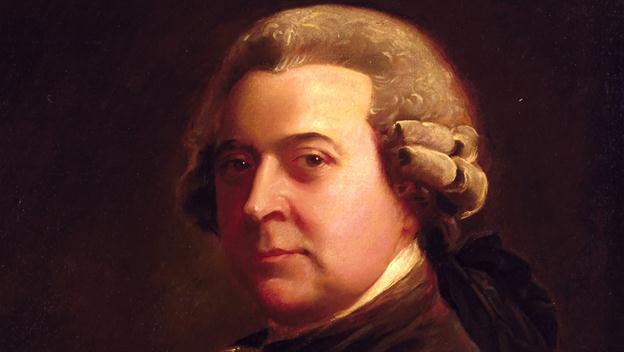
John Adams was an American Patriot who served as the second President of the United States and the first Vice President. He was an integral part in the founding of America and the convincing of the 13 colonies to declare independence from Great Britain.
I read about this great man thirteen years ago in the book John Adams by David McCullough. It beautifully documented his contributions, successes, failures, weaknesses, strengths, and family life. This accounting provided me with a deep and sincere reverence for him and the many others who founded the greatest country this world has ever known. Recently, I came across the HBO series, John Adams, based on this same book. Now three episodes in I am, once again, experiencing this same reverence I felt many years ago. I believe his story can inspire many towards their own personal independence in peace, fulfillment, and happiness.
With this preface I share a few attributes he exercised to accomplish his exemplary life:
- Passion and Purpose: John Adams was a passionate man. His passion was founded on values which drove his purpose. An example of this purpose is described when he wrote “I must study politics and war that my sons may have liberty to study mathematics and philosophy. My sons ought to study mathematics and philosophy …in order to give their children a right to study painting, poetry, music, architecture, statuary, tapestry, and porcelain.” He was clear on his life’s work and this fueled his passion to accomplish it.
- Education: He wrote “There are two types of education… One should teach us how to make a living, and the other how to live.” He viewed education as much more than a means to earn money in order to live with ease. Its purpose was to “make you a good man and a useful citizen.” Until his death he involved himself in books of all kinds, striving for more understanding of the world around him. Are we using education to facilitate this type of internal and external change? Is education still a part of our lives even though we have completed our formal schooling?
- Sacrifice: He sacrificed for his purpose. Many compromises were made at the expense of rest, relaxation, and family bonds but his purpose drove him towards such ends. Faith in its integrity and feasibility allowed him to press forward in the darkest of times. This persistence facilitated great results in his life and in the lives of those whom he loved most. What are we sacrificing for the fulfillment of our purpose?
- Love: Great respect, admiration, and love filled his marriage with Abigail Smith. This marriage is known as one of the great romances of U.S. history. This romance was not without its challenges and difficulties. His civic duty took him thousands of miles away for lengthy periods of time. Despite this separation their love for one another secured their marital vows and led to a marriage that would last 50+ years. Being clear on what he loved most (Abigail and country) enabled him to make the required sacrifices to nurture both of these relationships. Love is an action verb and he loved both deeply. How is our love shown for the most important things in our lives?
The recipe for a great life is purpose, education, sacrifice, and love. Without these elements life becomes flavorless, meaningless, and empty. We, too often, shelter ourselves from difficult challenges at the price of negating profoundly significant joys. To dedicate oneself to something greater than TV programs, food, and social media has the potential to produce so much good. Decide today to fill the void you may have by dedicating yourself to your most sacred values.

Comments are closed.